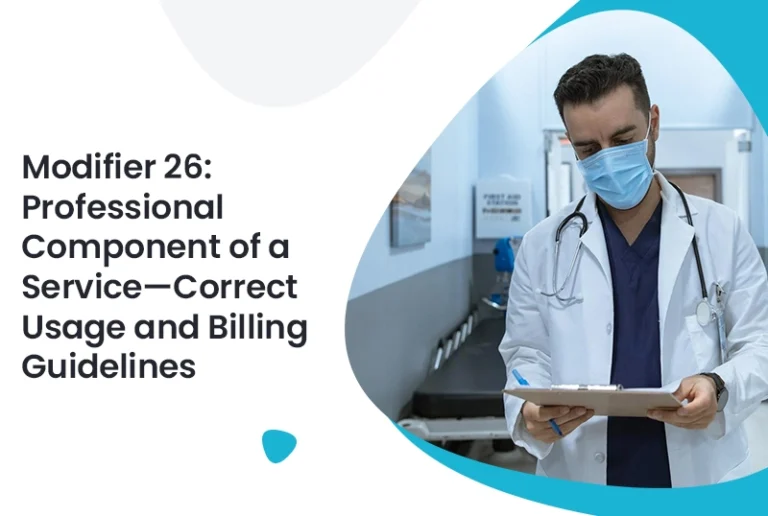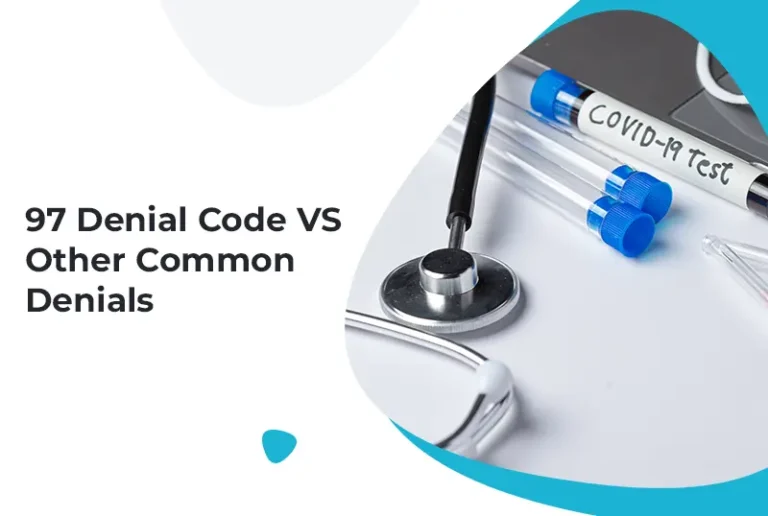Applying the correct modifiers is vital for a medical billing service to ensure coder accuracy and proper reimbursement. Modifier 59 is one such crucial modifier used to denote a unique procedural service. But what does it mean, and how should one apply it? We’ll define it, give coding recommendations, and explain how it affects your practice’s revenue in this guide. Let’s get right in!
What is Modifier 59?
It is used to denote that two or more services performed on a patient are distinct and separate. It informs insurers that the procedure was independent of other services provided during the same session. This modifier applies when a procedure needs to be billed separately because it was performed independently, such as when a patient receives multiple treatments for different conditions.
When to Use Modifier 59
- When a procedure is unrelated to another one performed on the same day.
- When two services are distinct and meet all the specific coding criteria for being billed separately.
- To avoid bundling issues with other services or incorrect payments.
The Importance of Accurate Modifier 59 Application
Incorrect use of it could result in underpayment or denials of claims, therefore affecting the financial situation of your practice. Correct coding guarantees fast processing of claims and lowers the possibility of compliance problems. Thus, it’s advisable to utilize this modifier only when needed and supported by appropriate documentation.
How to Apply Modifier 59
- Review documentation carefully: Ensure the services are distinct and separately identifiable.
- Apply it only when appropriate: Don’t use it routinely for every service—apply it only when distinct services are performed.
- Use with proper CPT codes: Make sure that the CPT codes match the service descriptions and that the services meet the requirements for it.
Read more about: cpt modifiers, modifier xs, modifier xu
Modifier 59 and Medical Billing Services
Should you be using a medical billing service, they can assist in ensuring proper application of modifier 59. Experts in the subtleties of modifiers, they guarantee accurate documentation and confirm that everything follows payer rules.
The Role of a Medical Billing Service
A medical billing service can:
- Review your coding practices and ensure compliance.
- File claims correctly with all necessary modifiers.
- Follow up on claims to resolve any issues quickly.
Partnering with an experienced billing service reduces the risk of errors and streamlines the billing process, so you can focus on patient care.
Professional Credential Services: Training and Certification for Coders
Applying modifier 59 correctly requires knowledge and expertise, which is where professional credential services come into play. These services provide the training and certification needed to fully understand medical coding rules and regulations. They ensure that coders are up-to-date with the latest guidelines and best practices for modifier usage.
How Credentialing Enhances Coding Accuracy
Credentialed medical coders:
- Have a deep understanding of modifier 59 and when it should be applied.
- Ensure that all codes and modifiers used are compliant with insurance and regulatory standards.
- Help reduce the chances of errors and claims denials.
Getting Certified
Consider investing in professional certifications, such as Certified Professional Coder (CPC) or Certified Coding Specialist (CCS), to stay current in the field. These credentials offer the expertise required to handle modifiers and other aspects of medical coding effectively.
How Modifier 59 Affects Healthcare
Revenue cycle management healthcare is the process of managing the financial aspects of healthcare, from billing to reimbursements. Correctly applying modifier 59 is a key part of RCM, as it ensures your claims are processed quickly and accurately, leading to proper reimbursement.
Impact of Modifier 59 on RCM
- Faster payments: By using of it correctly, your claims are less likely to be delayed.
- Fewer denials: Properly identifying distinct services means fewer errors and rejections.
- Improved cash flow: Accurate claims result in quicker processing and fewer issues that delay payments.
Effective RCM relies on accurate coding, and the correct use of it ensures that your claims are processed efficiently, optimizing revenue.
Best Practices for Using Modifier 59
- Understand the Rules: Familiarize yourself with the guidelines for applying it. Always ensure that the services meet the requirements before using the modifier.
- Maintain Clear Documentation: For every service billed with modifier 59, include detailed notes that explain the distinct nature of the services.
- Train Your Coding Team: Ensure your coding staff is well-trained on the proper use of it and other billing practices.
- Consult with Billing Experts: If you’re unsure, work with a medical billing service to verify that modifiers are being used correctly.
Conclusion
Accurate pricing of different procedural services depends critically on Modifier 59. Correct application of it will help to avoid claim denials, lower payment delays, and maximize the revenue cycle management of your clinic. Recall that good documentation, current coding standards, and working with trained coders or a professional billing agency will help to enhance the reimbursement process of your firm.
FAQs
Q: Why is Modifier 59 important?
A: It ensures that distinct services are reimbursed correctly and helps prevent claim denials.
Q: How do I apply Modifier 59?
A: Apply it when services are distinct, use the correct CPT codes, and document thoroughly.
Q: How does Modifier 59 affect revenue cycle management?
A: It helps improve payment speed, reduce errors, and optimize cash flow in revenue cycle management healthcare.
Q: Can a medical billing service help with Modifier 59?
A: Yes, a medical billing service can ensure that it is used correctly and your claims are processed efficiently.







